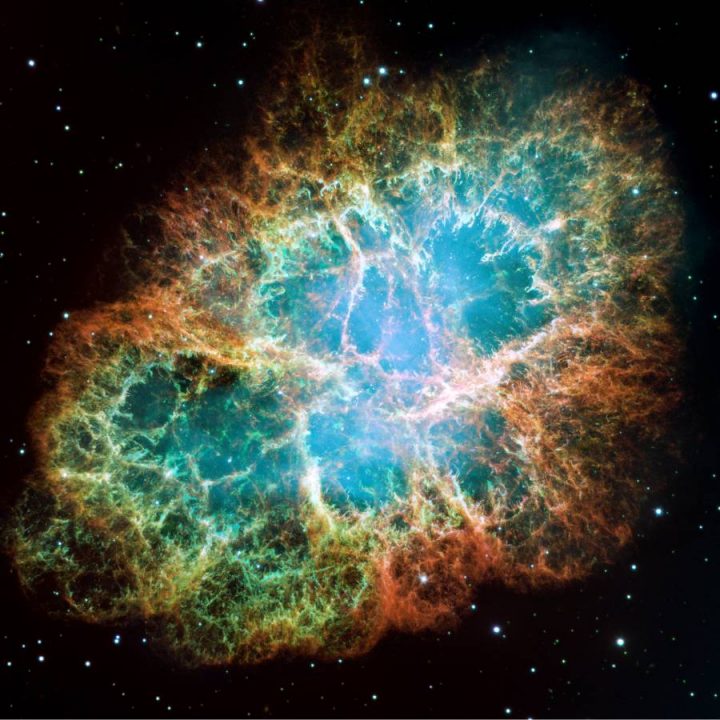The notion that “we are all made of stars” transcends a mere poetic expression; it encapsulates profound philosophical and spiritual ramifications inherent within the Bahá’í teachings. This concept unites science and spirituality, urging humanity to reevaluate its place within the cosmos. As individuals, we often perceive ourselves as separate entities, adrift in an expansive universe. However, reinterpreting our existence through the prism of interconnectedness can catalyze a transformative perspective that fosters unity, empathy, and purpose among diverse peoples.
To begin exploring this intriguing premise, one must first examine the fundamental scientific principle underpinning this assertion. Astrophysical research reveals that the heavy elements that constitute human bodies—such as carbon, nitrogen, and oxygen—were forged in the hearts of stars through nuclear fusion. When these luminescent giants exhaust their lifespans, they undergo cataclysmic explosions known as supernovae, dispersing their essential components throughout the universe. Consequently, every atom within our being can be traced back to stardust, effectively rendering us kin to the cosmos. This scientific revelation compels humanity to reflect on the interconnected nature of all existence.
In the Bahá’í faith, the understanding of interconnectedness is not solely a scientific observation; it is a fundamental tenet that informs the worldview espoused by its followers. This perspective compels believers to recognize the inherent unity of all people, transcending the superficial divisions imposed by race, nationality, or creed. Bahá’u’lláh, the founder of the Bahá’í Faith, emphasized that “the earth is but one country, and mankind its citizens.” This assertion serves as a clarion call to embrace our commonality, suggesting that the recognition of our shared origin as “children of the stars” can dismantle barriers and engender an ethos of compassion and cooperation.
Furthermore, this idea inspires a deeper inquiry into the essence of life. If we are all composed of the same cosmic elements, it follows that there exists an intrinsic value in every human being. The Bahá’í teachings advocate for the promotion of equity and justice, emphasizing the importance of uplifting the disenfranchised and marginalized. This spiritual equality arises from the recognition that every individual, by virtue of being made of “star-stuff,” embodies a unique facet of the cosmos itself. This perspective engenders a sense of responsibility towards the well-being of others, motivating individuals to act in service to humanity.
Moreover, contemplating our stellar origins invites reflections on the purpose of existence. If humankind is inherently connected to the universe, what implications does this hold for our individual and collective aspirations? The Bahá’í teachings posit that the purpose of life is to develop our innate potential and contribute to the betterment of society. By embracing this celestial kinship, individuals can cultivate virtues that reflect the qualities of the universe itself—such as love, justice, and wisdom. This metamorphosis from a self-centered existence to one marked by altruism embodies the Bahá’í principle of service, wherein personal growth and societal progress become entwined.
The assertion that “we are all made of stars” also beckons a reevaluation of our relationship with nature. When one acknowledges their cosmic heritage, it becomes increasingly difficult to engage in practices that harm the environment or exploit its resources. The Bahá’í teachings advocate for the stewardship of the earth, as humanity’s actions possess far-reaching implications. Recognizing our shared origin with the earth and the celestial bodies above fosters a sense of reverence for nature, prompting individuals to engage in sustainable practices that ensure the health and longevity of the planet. This alignment with the natural world reflects a deeper understanding of our place within the grand tapestry of existence.
As humanity navigates the challenges of an increasingly fragmented world, the spiritual meaning behind the statement “we are all made of stars” heralds an auspicious paradigm shift. It beckons individuals to transcend egocentric tendencies, cultivating a global ethos of compassion and interconnectedness. This shift in perspective opens the door to the realization that collective action is imperative in addressing pressing issues such as inequality, conflict, and environmental degradation.
In synthesis, the Bahá’í teachings illuminate the significance of recognizing our universal origins as a catalyst for spiritual awakening and social transformation. By embracing the notion that we are all made of stars, individuals can partake in the venerable journey towards unity, service, and transcendence. This profound understanding engenders a sense of purpose, guiding humanity toward a future where compassion, justice, and harmony prevail. Ultimately, the exploration of this cosmic kinship lays the groundwork for a new era of enlightenment, wherein the interdependence of all life is embraced as a fundamental reality. In the immortal words of Bahá’u’lláh, “The ocean of the spirit is a great, unfathomable sea, and the waves therein are the manifestations of the divine.” Let us navigate this inexorable tide together, with open hearts and open minds.
